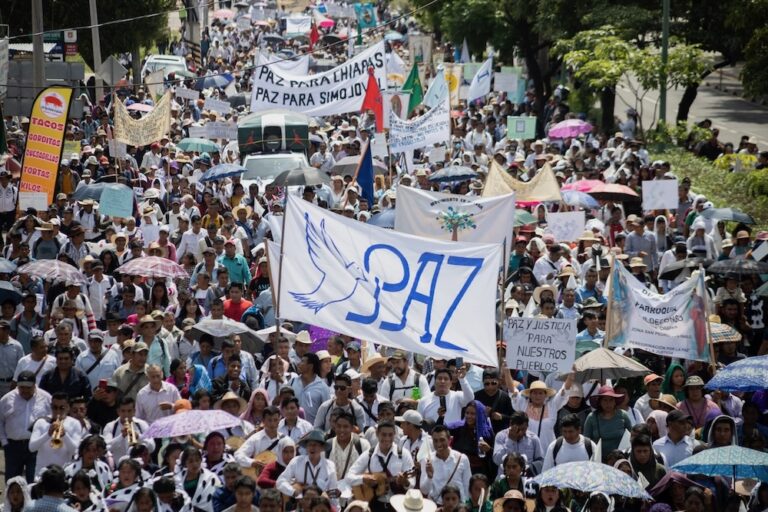According to a July 16 press report, the Secretariat of National Defense (Sedena) - the body that oversees Mexico’s Army and Air Force - awarded five surveillance contracts from March 2011 - 2012, without opening them up to bid.
(EFF/IFEX) – 24 July 2012 – The Mexican government shelled out $4.6 billion pesos ($355 million USD) to expand Mexican domestic surveillance equipment over the past year, a set of newly leaked documents has revealed. According to a July 16 press report, the Secretariat of National Defense (Sedena) – the body that oversees Mexico’s Army and Air Force – awarded five surveillance contracts from March 2011 – 2012, without opening them up to bid. The contracts were for the procurement of devices capable of intercepting mobile phone and online communications. The classified contracts were allegedly leaked to Aristegui Noticias, a Mexican newspaper, by military sources.
Official government channels contain hardly any evidence of the awarded contracts. Journalist Daniel Lizarraga has called attention to the fact that they’re nowhere to be found on the website of the Mexican Access to Information agency (IFAI). Yet basic information about the contracts should be made publicly available on that site, according to the Mexican Freedom of Information Act. Even in the case of classified documents, the government has an obligation to disclose “the administrative unit that generated the information, the date of the classification, the grounds, the reserve period, or, if it is the case, those portions of the documents that are privileged or confidential.”
The Mexican government’s new spy gear
Sedena purchased different kinds of technology in each of the five contracts. One kind of software is “capable of extracting text and multimedia messages, contact lists, agenda registries, e-mail monitoring, voice interception, background sound, [and] room monitoring via microphone activation,” among other features.
Sedena also purchased software capable of surveilling e-mails, Internet navigation history and audio. Another kind of equipment can monitor the status of a computer by keeping tabs on “log-in and log-off, screensaver and operational hours to study the behavior and routines of the target or intruder.” The vendor, Security Tracking Devices S.A de C.V., also offers training on “ethical hacker version 7,” “security wireless attacks,” “penetration,” “cracking the perimeter” and software for cracking passwords.
This new surveillance apparatus builds upon a Mexican trend of increasing its surveillance capacity. Last May, EFF published an Op-ed in Al Jazeera calling attention to the U.S. State Department’s plans to help the Mexican government triple the size of its national surveillance system. In March, the Mexican legislature adopted a surveillance legislation that will grant the police warrantless access to real time user location data.
Government transparency is vitally important for accountability and democracy. Mexicans have the right to know how government surveillance technologies are being used against them, and what type of information is being collected. As a wise person once said, sunshine is the best disinfectant. Mexicans should not be left in the dark.


